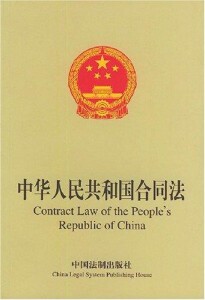23
Sep 2020
International Sales Contract
Jorge Millan & Ivan Hernandez
An international sale contract is a binding agreement between the parties in which it establishes the commitments acquired in the transaction, that is, it is the formal beginning of the relationship between the supplier and the buyer, regardless of the country in which they are located.
As we have mentioned in our previous articles, an efficient sourcing of supplier and analysis is the fundamental part of any international purchasing project. Likewise, we have also said that a factory audit is important In order to know the infrastructure and technical capabilities of the supplier of your choice.
The above actions will help you to avoid any sanction by the customs and tax authorities of your country and to reduce the risk of receiving commercial surprises derived from a “blind” selection of the potential supplier.
In this article, we want to tell you about the importance of an international sales contract. International sales fall under the United Nation Conventions on Contract for the International Sale of Goods (CISG) or the UNIDROIT Principles of International Commercial Contracts. However, it is always recommended to take into account the legal framework of the country where your supplier is located so that the sales contract can be adjusted to what your company requires.
 In the specific case of having suppliers in China, we suggest to have a local contract written in Chinese, since a Proforma Invoice has no legal validity in the country and very few suppliers will agree to sign an international contract.
In the specific case of having suppliers in China, we suggest to have a local contract written in Chinese, since a Proforma Invoice has no legal validity in the country and very few suppliers will agree to sign an international contract.
Nowadays, many of the purchasing operations are carried out without the proper analysis of the supplier and without an international sales contract. This action of some companies exposes them to a large number of possible consequences, such as doing business with entities related to a crime (tax evasion), not receiving a response due to lack of compliance with the agreed quality of your merchandise, being liable to fines that may get to end your company and even your freedom, such as those related to in the Foreign Corrupt Practices Act (FCPA) of the United States, anti-money laundering, not child abuse at work, among others.
Some of the key clauses of an international sales contract may have are:
1.- Complete Information of the Seller and Buyer. Full company name, identification number, registration address, name and position of the signatory, among others. A factory audit will help you to confirm this information is legit or not.
2.- Description of Goods. Quantity, quality, description, certificates, country of origin, packaging, among others.
What does the detailed description of the goods comprise? This point within the international sales contract must be established in a clear, explicit and measurable way, where all the technical and functional specifications of the product are detailed, such as the design, materials, dimensions, finishes, colors, among others, and attributes. such as packaging, brands, and labels that the product must comply with and which are technically known as the Minimum Manufacturing Requirements (MMR).
 Within our international sales contract, the buyer must also establish the criteria for acceptance, rejection and accepted tolerances for possible manufacturing defects that the product may present. Other points to consider within our contract are the tests and their methods to which the products may be subjected to determine that they “meet” with the MMR and be accepted by the buyer. The above is summarized in the following questions that must be answered before any purchase:
Within our international sales contract, the buyer must also establish the criteria for acceptance, rejection and accepted tolerances for possible manufacturing defects that the product may present. Other points to consider within our contract are the tests and their methods to which the products may be subjected to determine that they “meet” with the MMR and be accepted by the buyer. The above is summarized in the following questions that must be answered before any purchase:
- What are the technical and commercial product specifications of the product to be purchased?
- What parameters must the product meet to be accepted and consider that the MMR are met?
- What tests can the product be subjected to and what are the expected results for the product to “meet” the MMR and buyer expectations?
The main commercial disputes and disagreements comes up because the buyers do not establish this set of parameters and qualitative and quantitative variables in a clear and formal way in order for the transaction to be considered successful and acceptable.
3.- Lack of Conformity. The Buyer shall examine the Goods, or cause them to be examined within as short period as is practicable in the circumstances. Specific date and time for quality inspections in the production line.
4.- Price. Currency and incoterm. The incoterm helps both parties to determine the rights and obligations of the seller and buyer in international transactions; responsibility for customs and payments of import duties; responsibility for obtaining insurance coverage, among others.
5.- Payment Conditions. Payment in advance, open account, documentary collection or documentary credit (also known as letter of credit). It is extremely important to clearly identify the seller’s bank accounts to avoid phishing, an illegal practice in the international trade arena which we will talk about in another article.
6.- Delivery Terms. Depends on the incoterm used, the contract will establish the exact place and date of delivery of the merchandise, delimiting the responsibility of each of the parties, as agreed.
7.- Documents. Commercial invoice, packing list, insurance documents, certificate of origin, customs documents, among others.
8.- Pre-Shipment Inspection (PSI). Ensure correct packing and labeling to avoid sanctions from importer´s government authorities. Save time and money by solving problems before shipment. Guarantee high customer satisfaction by shipping the right goods.
9.- Transfer of Property. Retention of Title (RoT) provides that the seller retains ownership of the goods until the full purchase price is paid and also that the seller may reclaim the goods if the price is not paid.
10.- Force Majeure. It means war, emergency, accident, fire, earthquake, flood, storm, industrial strike or other impediment which the affected party proves was beyond its control and that it could not reasonably be expected to have taken the impediment into account at the time of the conclusion of the contract or to have avoided or overcome it or its consequences.
11.- Dispute Resolution. The buyer and the seller can choose either arbitration or litigation. If the litigation the parties should designate the national or municipal courts in which lawsuits are be filed.
If the arbitration is chosen you shall specify the place and language of arbitration. In the case of China, you can choose the Arbitration Commissions with most prestige and international experience: CIETAC (China International and Economic Trade Arbitration Commission) or BAC (Beijing Arbitration Commission). If your supplier agrees, you may also choose the ICC Arbitration option.
12.- Governing Law. The right to choose the law of its country belongs to the party that drafts the contract but usually is the seller. Conditions regarding the governing law are closely related to conditions on the dispute resolution clause.
Regardless of the scale of your project, you should consider contacting an experienced international trade attorney to draft a proper contract with the bare minimum of formalities.
A dispute with your supplier with a signed contract is painful and very expensive, but a dispute without a fully valid contract is a losing battle that would put your investment, company and prestige at risk.
Finally, a contract can protect you before the international authority from any participation or correspondent in the commission of a crime by your supplier. Now, do you see the importance of a contract and a factory audit?
































